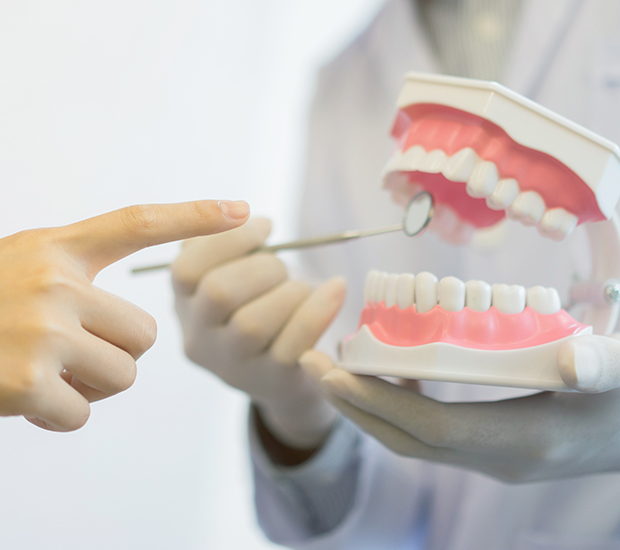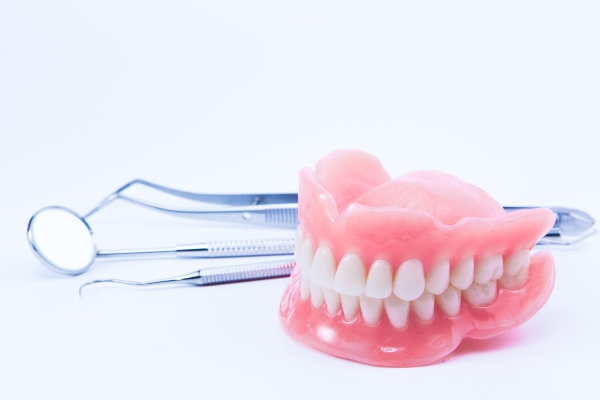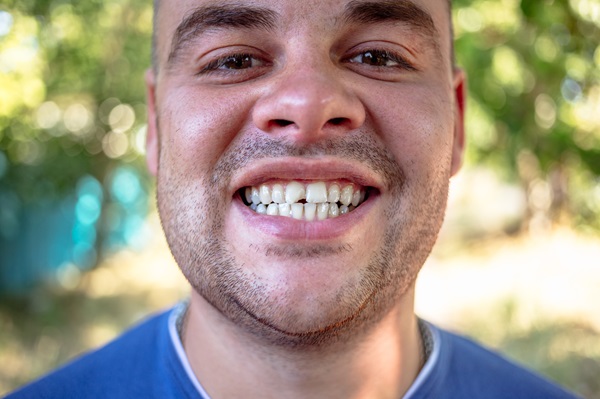Oral SurgeonTucson, AZ
The American Dental Association lists the services of an oral surgeon as one of the nine specialty areas in dentistry. Oral surgeons deal with the diagnosis and surgical treatment of diseases, injuries and defects that affect the function and cosmetic features of the teeth, mouth, face and jaws. If you need an oral surgeon, continue reading to learn more about the services they provide and other helpful information.
Changes/Cancellation? - You must CALL at least 48 business hours prior to your scheduled appointment and speak with a team member to avoid charges.
We cannot accept appointment change requests via voicemail, email or text for your protection.
The need for oral surgery
A surgical procedure may be necessary for several reasons. The most important of all is oral health. Tooth decay is rampant, but with regular oral care, early detection and treatment can take place before discomfort and infection escalate. Unfortunately, many people do not keep up with regular dental checkups, and this may usher in infections. Sometimes the decay worsens to the point where tooth extraction by an oral surgeon is necessary to stop the pain.
Another common reason to perform oral surgery is to extract wisdom teeth. Although they may not always be problematic or pose an immediate health threat, they can become impacted and cause severe discomfort. Removing them is a necessary procedure to prevent potential infections and prevent wisdom teeth from wreaking havoc on other teeth.
Most people also undergo oral surgery for cosmetic purposes, mainly to replace lost teeth with dental implants. A dental implant restoration is a secure and durable tooth replacement because it replaces the tooth root with a titanium post, which supports the new artificial tooth. Titanium is usually used because it is strong and biocompatible, meaning the body sees it as natural matter. The implant fuses with the jawbone over several months and forms the new root system. When the final prosthesis is attached, it will function and look like a natural tooth.
Oral surgery services
An oral surgeon can provide any of the following services:
- Reconstructive and cosmetic surgery: Oral surgeons can treat facial bone, oral soft tissues and jaw problems caused by trauma or removal of tumors and cysts. They perform corrective surgeries to restore form and function to the maxillofacial area. This often requires transplanting bone, skin, nerves and tissues from other areas of the body to reconstruct the face and jaws.
- Corrective jaw surgery: Oral surgeons can correct irregularities with the jawbone to improve speech, eating and breathing. They can perform surgical reconstruction and realign the upper and lower jaw into their proper form to improve facial aesthetics and biting function. An oral surgeon can also correct congenital disabilities of the face and skull, such as a cleft palate and cleft lip.
- Bone and gum graft procedure: When a patient who needs dental implants does not have enough bone to support the implants, the surgeon can rebuild the bone in that area. They can also modify the gum tissues to provide a more natural and attractive appearance, such as by using a laser fiber, PerioLase MVP-7, to clean the periodontal pocket before shaping the gums.
Preparing for oral surgery
One of the oral surgeon’s goals is to keep the patient comfortable throughout the procedure, and that includes helping them prepare. Before the surgery, the dentist will review the process, step by step, so patients know what to expect. Usually, the patient will need to avoid eating before the procedure. This is standard practice if the patient will receive anesthesia.
Also, it is advisable to buy and store ice packs for use after the procedure. Due to the nature of certain surgical procedures, the patient will be in no condition to drive, so they will have to arrange for transportation back home. It is a good idea to buy soft foods, recommended drugs and anything else that will keep them comfortable.
Education and training for an oral surgeon
To get a certification from the American Board of Oral and Maxillofacial Surgery, an oral surgeon must finish from an accredited dental school and obtain a license from the state where they practice. They will also complete four or more years of training in a residency program. During their training, they will learn about different aspects of general surgery, medicine and pathology. They may provide their services in surgery centers, hospitals, outpatient facilities and dental practice settings.
Check out what others are saying about our Oral Surgeon services on Google: Oral Surgeon Tucson
Choosing an oral surgeon
Before choosing an oral surgeon, patients must consider the following factors:
- Skills and experience: Ideally, patients should choose an oral surgeon with a good reputation and successful dental practice. The services provided by the surgeon should be relevant to the procedure that the patient requires. During an appointment with the dental professional, patients can ask about their experience and knowledge of handling similar cases.
- Board certification and continuing education: The dentist should belong to specific professional dental organizations and have a certification to that effect. Choose an oral surgeon with a certification from the American Board of Oral and Maxillofacial Surgery. Also, the American Dental Association demands that dentists take continuous training to stay updated with the latest procedures and relevant technological advances.
Recovery after oral surgery
The recovery process depends on the nature of the surgery. Typically, minor bleeding is normal after a dental operation and usually temporary. The oral surgeon will provide gauze to control the bleeding. Also, swelling may occur and is often the main cause of pain. Patients can control the swelling by placing an ice pack on the face for 15 minutes intermittently. The use of ice packs may continue for a day or two, while pain relievers may be needed for another week.
The surgeon may provide antibiotics to prevent infection. For food, it is better to stick with soft foods that do not require chewing, like soup, or can be eaten easily without hurting the oral cavity. Rest is an integral part of recovery. The oral surgeon will provide instructions for proper healing and recovery.
In conclusion
To know if you require an oral surgery or if you want to learn more about a surgical procedure, you can schedule a consultation with the oral surgeon. They can enlighten you and answer any questions you have. As part of your consultation, you may undergo an oral examination to determine the extent of the problem, and then the oral surgeon can create a treatment plan to restore the oral health and aesthetics of your smile.
Contact Us
Casas Adobes Dentistry is located at 7520 N. Oracle Rd. Suite 200 Tucson, AZ 85704.





